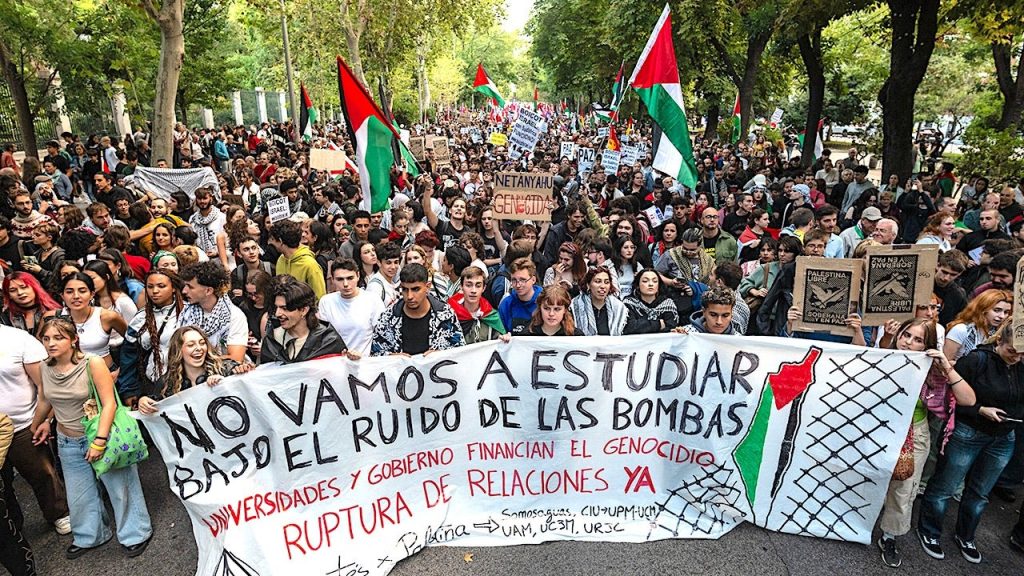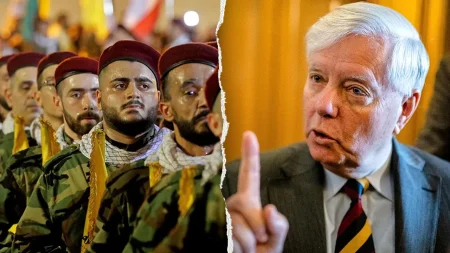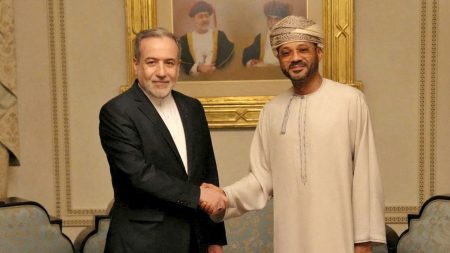Spain’s Prime Minister Under Fire for Controversial Comments About Israel
In a recent political storm that has erupted between Spain and Israel, Prime Minister Pedro Sanchez finds himself at the center of a diplomatic controversy following comments that have been interpreted as threatening. During a speech last week, Sanchez stated, “Spain, as you know, doesn’t have nuclear bombs, aircraft carriers, or large oil reserves,” before adding, “We alone can’t stop the Israeli offensive. But that doesn’t mean we won’t stop trying. Because there are causes worth fighting for, even if winning them isn’t in our sole power.” These remarks have sparked outrage and concern, with Israeli Prime Minister Benjamin Netanyahu accusing Sanchez of making a “blatant genocidal threat” against Israel. Netanyahu’s response referenced Spain’s troubled history with its Jewish population, stating that “Apparently, the Spanish Inquisition, the expulsion of the Jews of Spain and the systematic mass murder of Jews in the Holocaust, is not enough for Sanchez.” The inflammatory exchange has led to Spain summoning Israel’s top diplomat to reject what they called “false and slanderous statements” from the Israeli prime minister’s office.
The controversy emerges against a backdrop of increasing tensions between the two nations. Sanchez, who leads a coalition of socialist and left-wing parties, has been criticized for his government’s stance on the Israeli-Palestinian conflict, particularly following the October 7 attacks. Juan Caldes, the European advocacy coordinator at the European Jewish Association, characterized Sanchez’s comments as “beyond hypocritical and cynical,” suggesting that the Spanish leader’s reference to nuclear weapons while discussing stopping Israel was particularly troubling. Caldes, who is Spanish himself, argued that Sanchez has “embraced the Palestinian cause” partly as a political distraction from domestic corruption scandals involving his family members and colleagues in the Socialist Party. This tactical pivot to foreign policy issues when facing domestic challenges is a familiar political strategy, but one that has sparked serious diplomatic consequences in this case.
Adding fuel to the fire, Sanchez’s coalition has been accused of expressing antisemitic views since October 7th. Critics point to statements by government officials like Vice President Yolanda Diaz, who reportedly said in a televised speech, “from the river to the sea Palestine will be free” – a slogan that many interpret as calling for the elimination of the state of Israel. Santiago Abascal, the leader of the right-wing Vox Party, seized on Sanchez’s nuclear comments, claiming that “Sanchez would like to have nuclear weapons… but not to defend Spain. To defend Hamas.” These accusations highlight the polarized nature of Spanish politics regarding the Israeli-Palestinian conflict, with opposition parties accusing the government of antisemitism while the government portrays its position as standing up for human rights and international law.
The controversy comes at a time when Spain’s small Jewish community, numbering around 12,900 people out of a population of 49 million, has reported experiencing a dramatic increase in antisemitism. According to the Federation of Jewish Communities of Spain, there was “the largest increase in modern history in antisemitic speech, incidents, and attacks, up 321% compared to 2023 and 567% compared to 2022.” This alarming trend raises concerns about the potential real-world consequences of inflammatory political rhetoric. While Caldes emphasized that it’s “important not to conflate” the government’s position with the views of most Spanish people, the sharp rise in antisemitic incidents suggests that political tensions may be having an impact on community relations within Spain itself.
The diplomatic fallout between Spain and Israel also reflects broader European divisions over the Middle East conflict. Spain, along with Ireland and Norway, recently recognized Palestinian statehood, a move that Netanyahu characterized as a “reward for terrorism.” This recognition came after months of criticism from these nations regarding Israel’s military operations in Gaza following the October 7 Hamas attacks. Sanchez has positioned his government as a defender of Palestinian rights and an advocate for a two-state solution, frequently criticizing Israel’s conduct in the ongoing conflict. These positions have won support from some segments of Spanish society but have clearly strained relations with Israel to a breaking point.
In this context, Sanchez’s comments about nuclear weapons, however intended, have become a flashpoint in an already tense relationship. The Spanish government maintains that Netanyahu has misinterpreted Sanchez’s words, taking them out of context to paint Spain as threatening Israel. However, the damage to diplomatic relations appears significant. The incident illustrates how, in the highly charged atmosphere surrounding the Israeli-Palestinian conflict, political statements can be interpreted in dramatically different ways, leading to escalating tensions between nations. As Spain and Israel attempt to navigate this diplomatic crisis, the exchange serves as a reminder of how words matter in international relations, especially when discussing one of the world’s most sensitive and long-standing conflicts.















